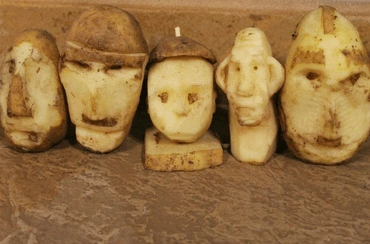1
Mais cela déplut à Jonas, il lui déplut extrêmement, et il en fut en colère.
2
C'est pourquoi il fit [cette] requête à l'Eternel, et dit : Ô Eternel! je te prie, n'est-ce pas ici ce que je disais, quand j'étais encore en mon pays? C'est pourquoi j'avais voulu m'enfuir en Tarsis; car je connaissais que tu es un [Dieu] Fort, miséricordieux, pitoyable, tardif à colère, abondant en gratuité, et qui te repens du mal [dont tu as menacé].
3
Maintenant donc, ô Eternel! ôte-moi, je te prie, la vie; car la mort m'est meilleure que la vie.
4
Et l'Eternel dit : Est-ce bien fait à toi de t'être [ainsi] mis en colère?
5
Et Jonas sortit de la ville, et s'assit du côté de l'Orient de la ville, et se fit là une cabane, et se tint à l'ombre sous elle, jusqu'à ce qu'il vît ce qui arriverait à la ville.
6
Et l'Eternel Dieu prépara un kikajon, et le fit croître au-dessus de Jonas, afin qu'il lui fît ombre sur sa tête, et qu'il le délivrât de son mal; et Jonas se réjouit extrêmement du kikajon.
7
Puis Dieu prépara pour le lendemain, lorsque l'aube du jour monterait, un ver qui frappa le kikajon, et il sécha.
8
Et il arriva que quand le soleil fut levé Dieu prépara un vent Oriental qu'on n'apercevait point, et le soleil frappa sur la tête de Jonas, en sorte que s'évanouissant il demanda de mourir, et il dit : La mort m'est meilleure que la vie.
9
Et Dieu dit à Jonas : Est-ce bien fait à toi de t'être ainsi dépité au sujet de ce kikajon? Et il répondit : C'est bien fait à moi que je me sois ainsi dépité, [même] jusqu'à la mort.
10
Et l'Eternel dit : [Tu voudrais] qu'on eût épargné le kikajon, pour lequel tu n'as point travaillé, et que tu n'as point fait croître; car il est venu en une nuit, et en une nuit il est péri;
11
Et moi, n'épargnerais-je point Ninive, cette grande ville, dans laquelle il y a plus de six vingt mille créatures humaines qui ne savent point [discerner] entre leur main droite et leur main gauche, et où il y a aussi une grande quantité de bêtes.







